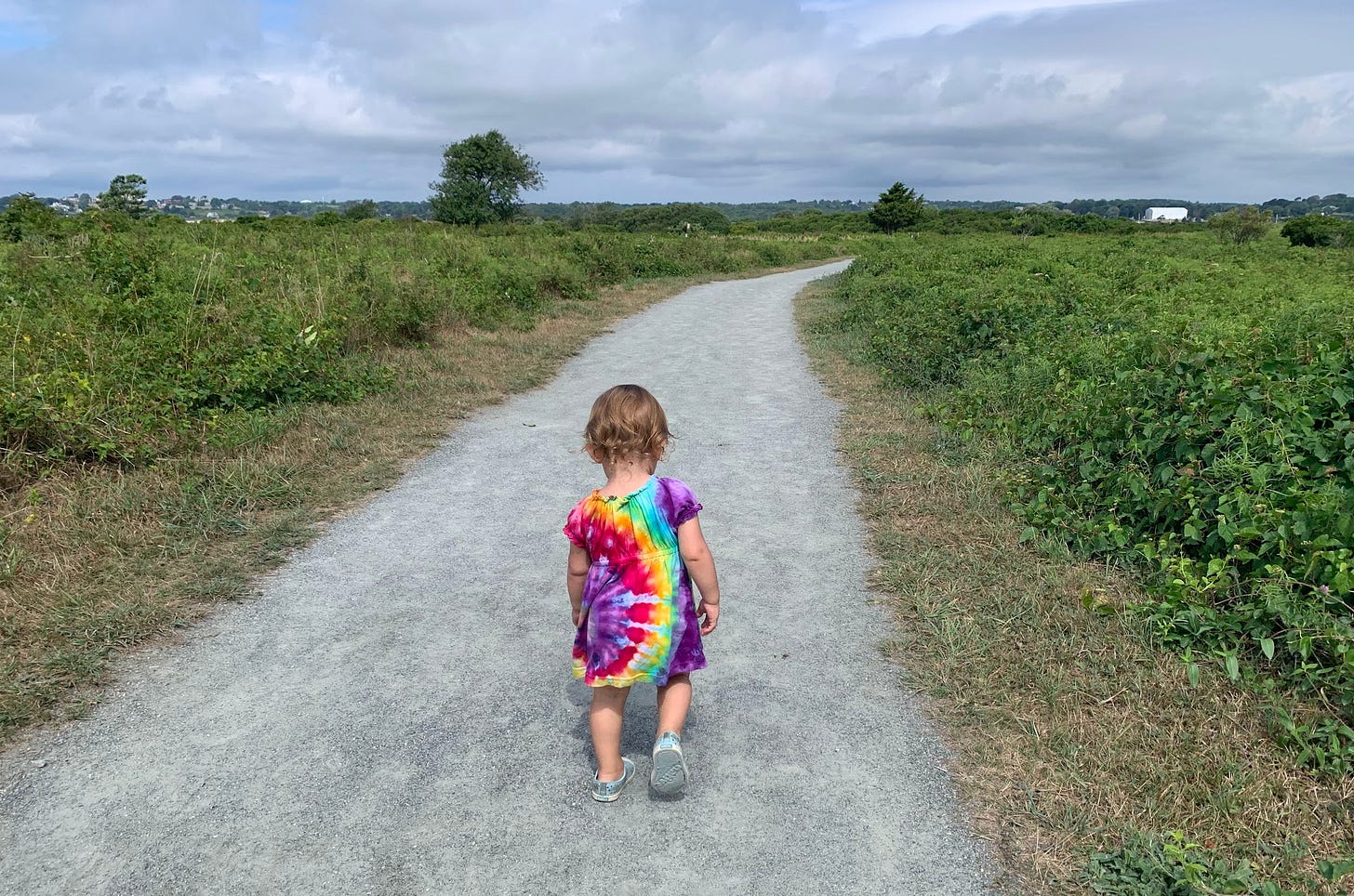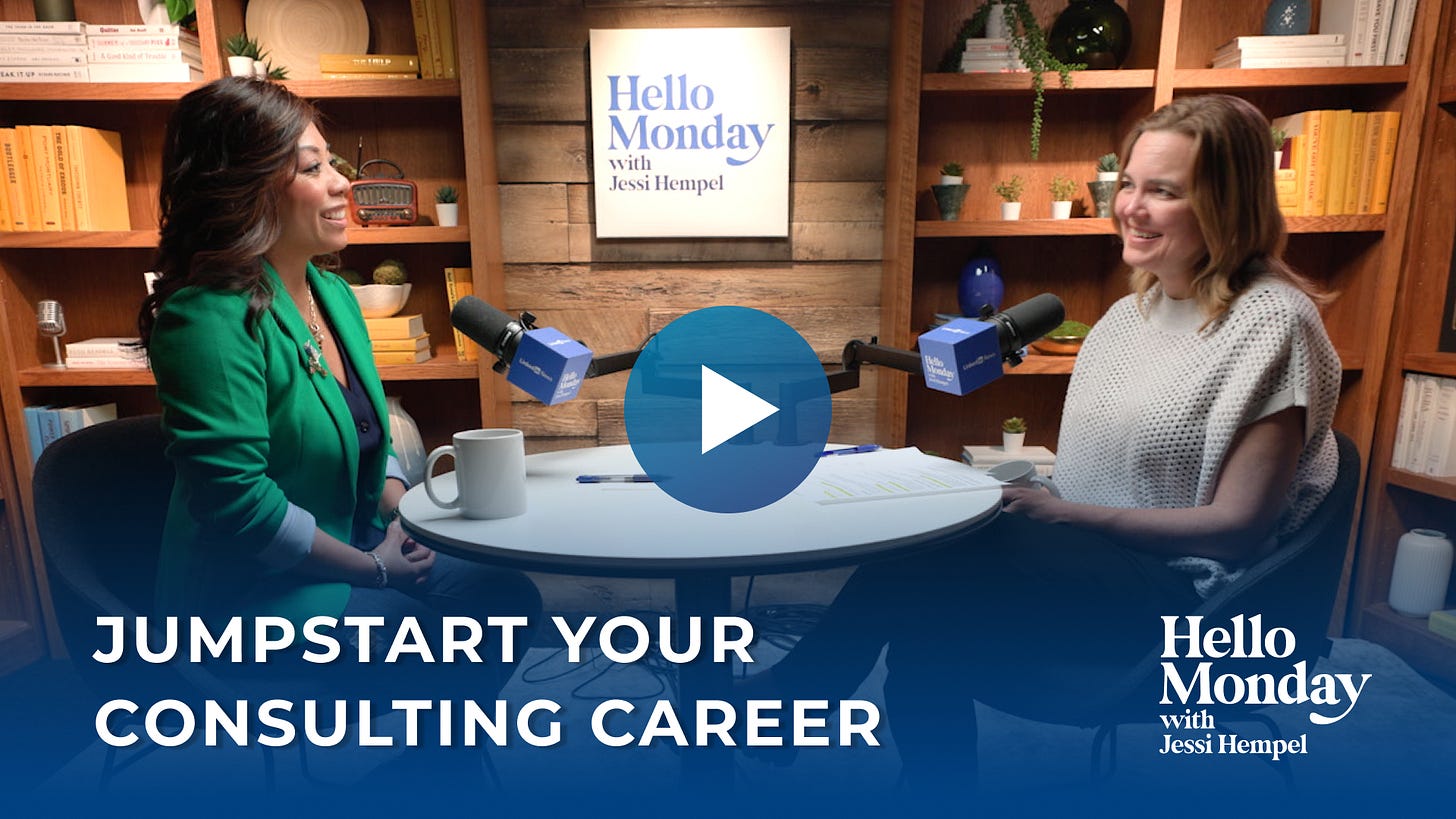I turn 50 next month, and I’ve been thinking a lot about what’s ahead. I’ve been watching friends manage careers through this decade, and I’ve started calling it fifties roulette. You start this decade with the big job you’ve worked for—maybe you love it, maybe you’re a little bored. At some point, it disappears.
Maybe there’s a restructure, or a change in strategy. Maybe you get burnt out and need something different. Regardless, as you test the waters for new jobs, you often discover that there aren’t a ton of rewarding full-time opportunities that are in line with the skills and gifts you’ve honed.
You look up and realize: The best opportunity out there might be the one you create for yourself. That’s when you become a consultant.
🎧 Check us out on YouTube, Apple Podcasts or Spotify 🎧
Too often, we think of consulting as something we fall into when the job market doesn’t cooperate. But what if it’s actually the smartest, most flexible, and most lucrative choice for this stage of our careers?
Today’s show is the first of several how-to conversations we will be having this year about self-employment. To wit: I’m convinced it will be the right choice for more and more professionals of all ages in the future. I know many people in their 30s, for example, choosing to work this way because they get both more control and more flexibility. (Read Charley Locke’s FAQ on the freelancing life.) So as you listen, keep track of questions that don’t get answered here and send them to me.
The anatomy of a career pivot
This week on Hello Monday, I asked Eloisa Domingo to join me for this conversation because she is just making this transition now. Eloisa built a powerhouse career in DEI, leading at organizations like Johns Hopkins and Allstate. When Allstate eliminated her chief diversity officer role last year, she had a choice to make. Instead of job-hunting, she founded Four Ten, her own consultancy—and just eight months in, she’s thriving.
Eloisa takes us through the critical choices she made to set herself up for success—choices that might help you, too. Here are a few of the strategies she reviews:
Invest in Professional Support Early: Eloiza advises spending money early on to identify strengths and weaknesses, and to hire professionals who can help with areas like value proposition, services, and branding.
Leverage Your Network: Eloiza highlights the importance of reaching out to your network and building new connections, even if it means stepping out of your comfort zone and contacting strangers on platforms like LinkedIn.
Understand (and charging) Your Worth: She stresses the importance of accurately pricing your services and not undervaluing your expertise. This involves understanding the financial impact of your work and being confident in your value.
Build a Strong Support Team: Eloiza recommends assembling a team of advisors, creatives, and other professionals who can help with various aspects of your business, from financial planning to branding and marketing.
Focus on Outcomes: She advises focusing on the final outcomes of your work rather than just the tasks you perform. This means being able to articulate the tangible benefits and financial returns your services provide to clients.







This episode is gold, Jessi. I wish I had been able to listen to it two years ago, when I left my last big-tech contract job, but I’ll take Eloiza’s wisdom and insights, and your canny synthesis, any day. I was floored by how much commonality there is between Eloiza’s experiences as a head of DEI and my own as a UX research leader - I never thought to look to that field for career paradigms, but it makes so much sense now that I think on it. Thanks so much for this, looking forward to your further explorations on this topic.